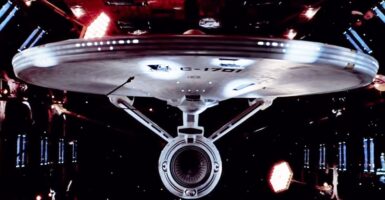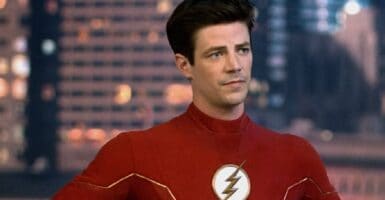Dennis Tito’s Planned 2018 Mars Mission Will Block Radiation With Poo

“Without risk, there is no knowledge.” That wise quote was from June Scobee Rodgers, widow of Challenger commander Dick Scobee, at the February 27th press conference where mega-millionaire Dennis Tito announced his plans to send humans on a fly-by of Mars by 2018. Tito, the first ever space tourist, founded Inspiration Mars, a non-profit group he hopes will become a quicksand for donations to fund the estimated $1 billion the mission will cost. But cost-effective ideas are already spewing out, and the corresponding quote for this story might be, “Without shit, there is no safety from cosmic radiation.”
Speaking to New Scientist, Taber MacCallum, one of Tito’s team members, dropped an informational deuce in saying the best possible solution to solar radiation will be lining the walls of the spacecraft with water, food, urine, and feces. Before you can say, “Holy load-bearing walls!” take the time to realize how ridiculously smart and conservative the idea is.
Food, first of all, is necessary on the trip anyway, so what better place to store it than inside the walls of the cramped shuttle itself, saving on space as well as blocking cosmic rays? Take note that the food isn’t actually absorbing the rays, so there’s no harm in eating them after the fact.
These next three all kind of work together. Water molecules do a better job of blocking radiation than metal because water molecules contain more nuclei than those of metals. So keeping the walls lined with water is a no-brainer. Then you drink the water, eat the food, and eventually you need to go to the bathroom. Thanks to technologies currently being derived from NASA and the ISS, the waste products would be put into bags and put right back into the wall, where they would eventually go through a deydration/filtration system involving polyethylene bags which results in clean drinking water. Albeit clean drinking water that might cause you to gag while drinking the first few times.
It’s a much simpler system than the automated life-support systems currently being used on the ISS, which gives it a higher probability of success. But there are still problems. Previous tests with the urine-to-water bags proved less efficient in space than on Earth, and there’s still the issue of how those bags of waste will affect the smell and sight of those on board. Considering Tito’s goal is to find a middle-aged married couple for the trip, that long history of togetherness could take a lot of the embarrassment out of the situation, but smelly shit is smelly shit. The final, rarer but more worrisome problem is spontaneous solar flares, but the team hopes to keep the upper rocket piece of the launch vehicle attached, so that it can be pointed towards the sun just in case.
I’m about to burst from maintaining a mature front throughout this story. I’m going to leave it up to you guys to dirty up the comments.












